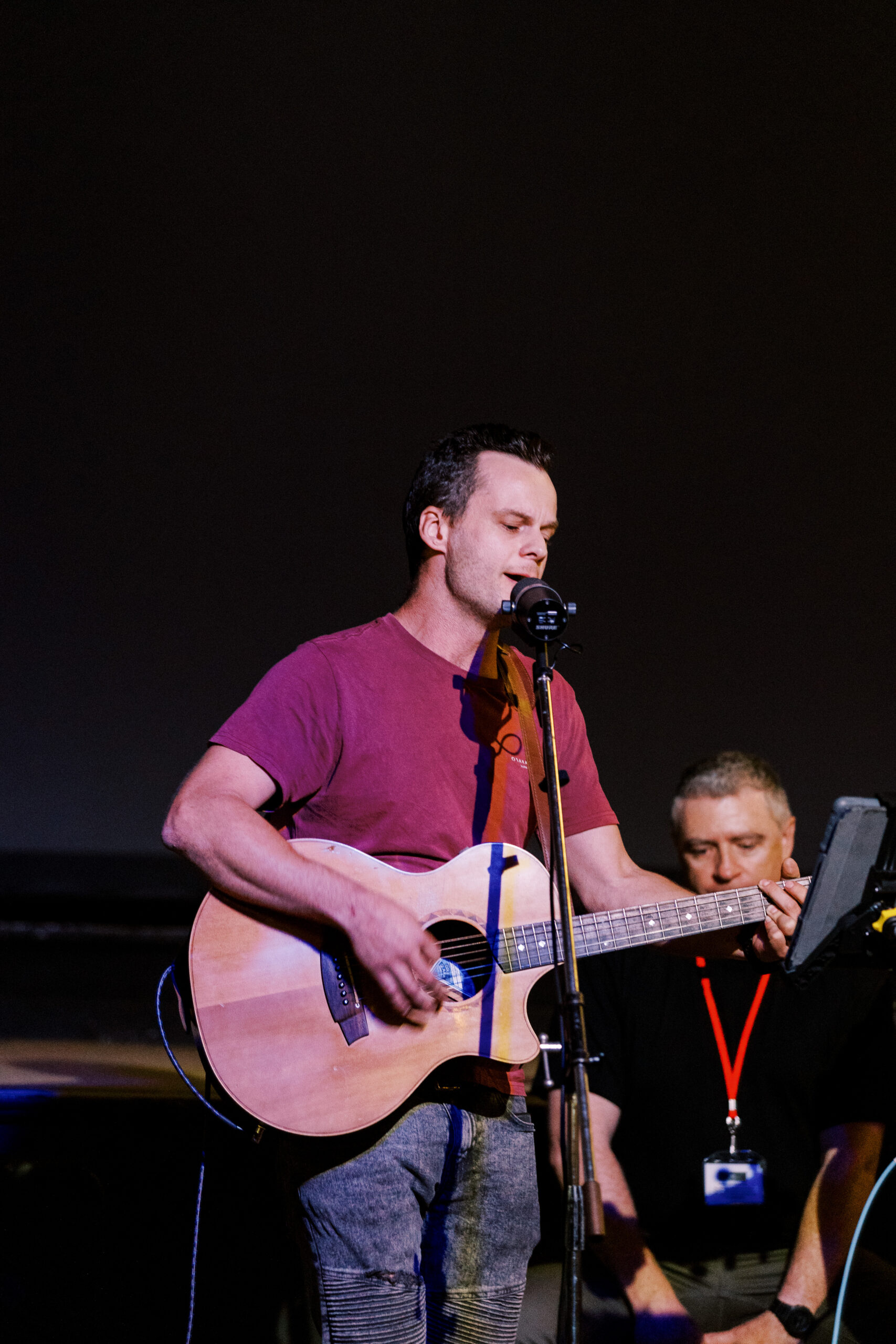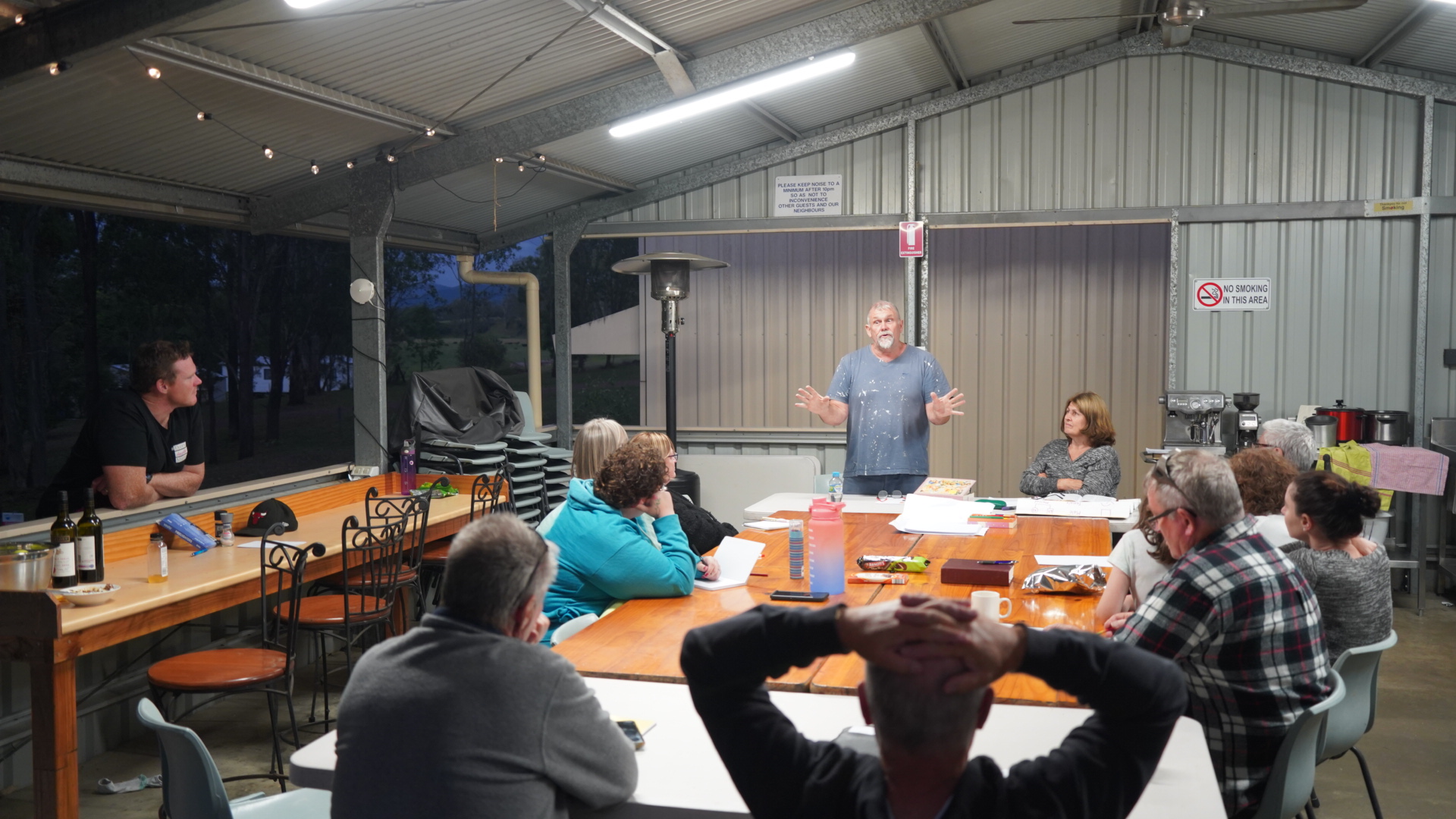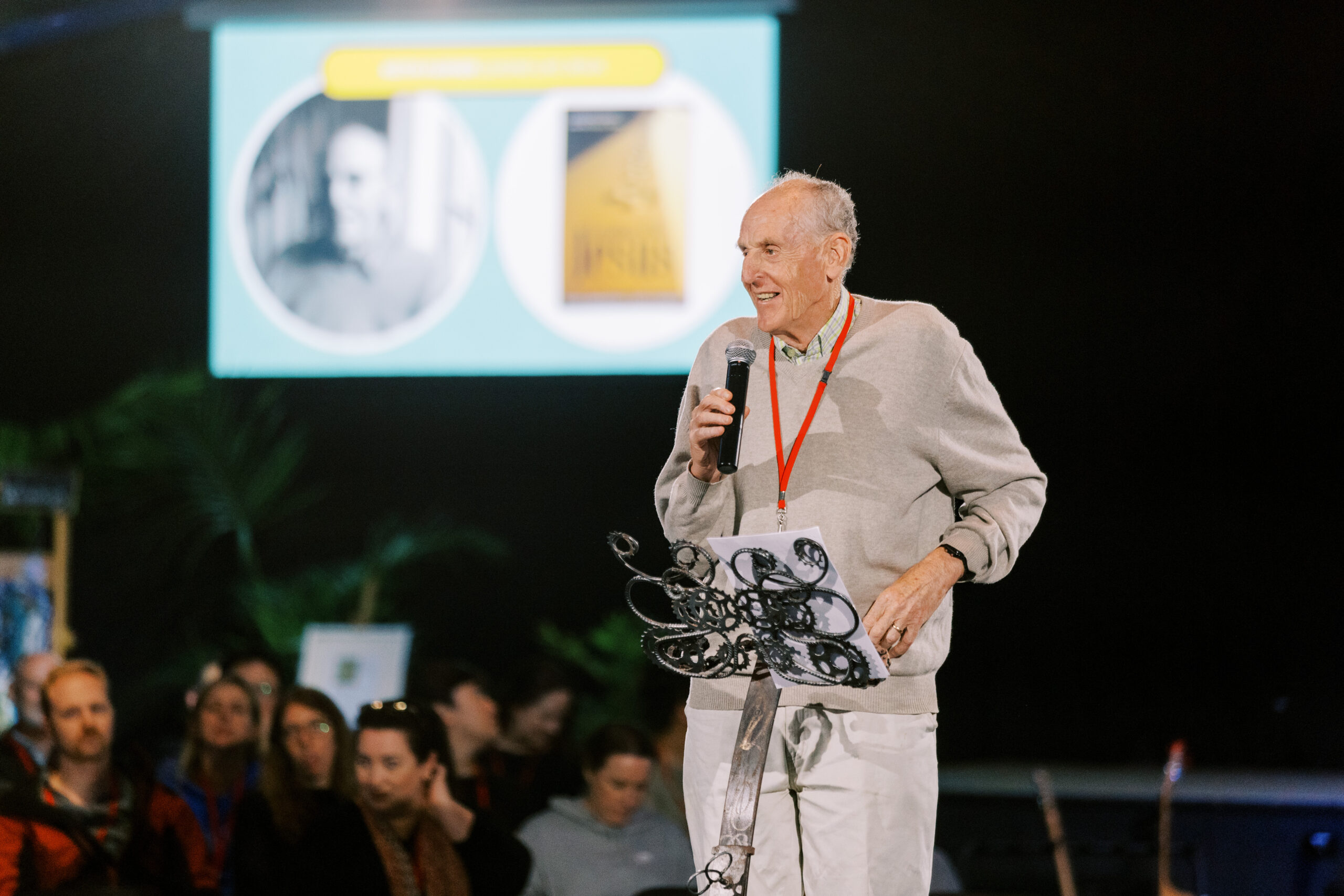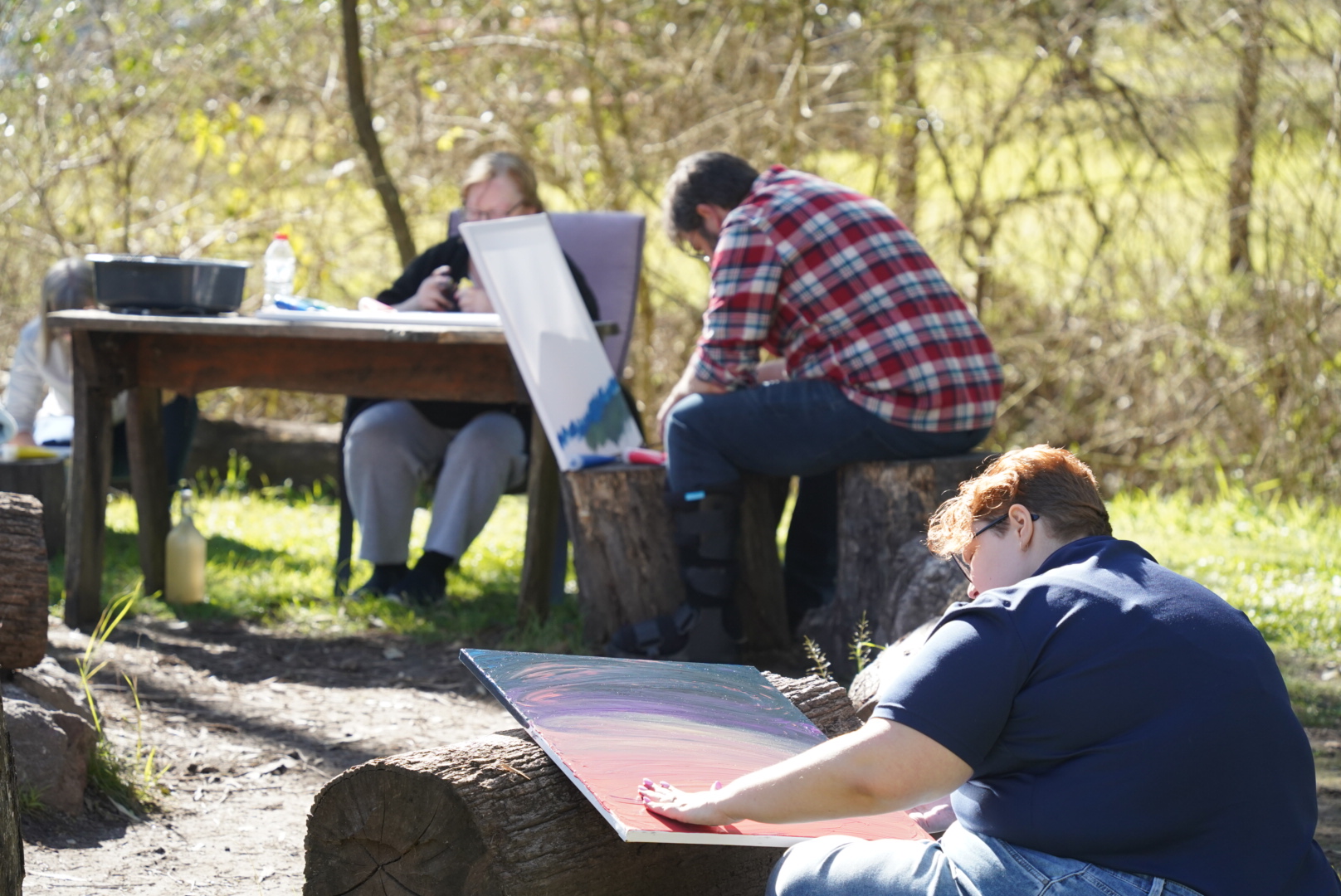By Amy Galliford
It’s a bright day, and all Jonathan can hear is the sound of his own feet traipsing through the undergrowth. The others have all headed off in other directions, taking the comfort of their steady chatter with them, leaving Jonathan alone with the bright day and the silence.
He wasn’t sure how he’d fill the hours ahead; he’d already forgotten whatever it was Rohan had invited them all to mediate on in their silence and solitude. He wandered, waited, stared. When a still, small voice whispered out of the silence the simple word, ‘Son,’ Jonathan finally understood what this was all about.
“The orphan spirit can’t be killed; it needs to be loved to life,” says Rohan Geddes, Associate Pastor at Penrith Church of Christ.
Such a statement encapsulates both Rohan and Senior Pastor Adam Miller’s heart for spiritual formation within their church community. Each has a passion for seeing spiritual formation established in the local church context, and they have turned their attention in recent years to creating grassroots rhythms of formation within their community. The spiritual retreat Jonathan attended was part of one of these rhythms.
“We’re trying to encourage spaces where people can’t hide,” Adam explains.
One way this has taken shape has been through their Formational Journey Groups, where a group of committed individuals meet around a meal and campfire for a few hours and share their lives. They use the time to show up vulnerably, with wins and losses, fears and doubts, sufferings and joys, and intentionally mirror and affirm the ways they see God moving in each other’s lives.
“The goal is for people to quit trying to be the person that is expected of them. It’s a space for honesty and healing,” Rohan says.
The other formational program they have set up, Immersion, is more facilitated, working with people’s identities and helping them locate Jesus in their own stories. In doing this, they use frameworks like genograms and Internal Family Systems to help unearth the lies and strongholds affecting an individual. With the program designed to guide people in discovering their identity as sons and daughters, its nine-month duration echoes the ‘rebirth’ many undergo.

An experiential kayaking activity on a formational Immersion retreat.
“The question we’re exploring through this kind of formation is, how have we already been formed? How have we been formed by our family, by our culture? How do we instead be formed by the Father’s voice?” Rohan explains.
In reflecting on the many Christians whose faith has been scarred by religion, Adam would add to this, “Have I been discipled by the church or by Jesus?”
A Legacy of Formation
Much of Adam and Rohan’s passion comes from their own journey of spiritual formation, a journey in which they have walked alongside each other for years.
“I experienced major transformation through Navigate. I was able to meet Jesus in my own story – I wanted others to experience that,” Adam reflects.
“We are uniquely created, we are uniquely connected to God, we uniquely worship God. If we can find Jesus in our own story through our trials and tribulations and traumas, then we can experience the abundant life that John 10:10 talks about.”
Rohan’s own journey was similar. He recalls his childhood as a missionary kid with fondness but also recognises the religious mindset that developed in him.
On the brink of his thirties, Rohan fell into what he describes as akin to C.S. Lewis’s idea of ‘Holy Dissatisfaction’, asking himself, “Is this all there is?” The question led him away from the religion that had so long shaped his thinking and down a path of discovering his real sonship in Christ.
“I moved from ‘I need to do stuff for God’ to ‘I get to do stuff with God’.”

Rohan and Adam’s stories, which feature churches of Christ’s former Navigate program and study at ACOM, reflect a legacy of spiritual formation within the network that runs deep in its DNA. Rohan points to the significance of Navigate, led by John and Marianne Crowther, as the soil where much of today’s harvest of formation was originally seeded.

John and Marianne Crowther lead a formation group session on retreat with Penrith Church of Christ.
Keith Farmer, the former Principal of ACOM who worked hard to embed spiritual formation within the college’s academic courses, is resolute on the importance of formation within leaders’ lives.
“People don’t last very long without formation. Most of the struggles, heartaches and hurts of leaders I have known and mentored were not about their theology. They were about a person waking up and feeling that they can’t do it anymore. Leadership failures are mostly about morality and lifestyle and character,” Keith reflects.

Keith Farmer shares about his recently launched book at Collective 2023.
Much of Keith’s motivation for bringing formation into ACOM was based on his own story, which again echoes the conversion from religious performance to sonship in Christ.
He says, “I was raised in a very religious home and was always very motivated by performance. But it never brought the sense of contentment or wellbeing that I knew I was promised. Spirituality doesn’t come easily to me, but health and resilience depend on going deeper with God. It was in the cut and thrust of life and ministry that I became convinced that I needed that depth with God.”
Formed by the Hands of Others
While spiritual formation programs feature practices of silence and solitude, there is a distinct and inescapable emphasis on community as the catalyst for transformation. As much as Penrith’s people withdraw to the wilderness, they gather again around campfires and tables. Rohan is adamant about this.

A few of this year’s Immersion participants at one of their getaways.
“Formation can’t be done outside of community. When you share your real story, you get to be loved not just as the parts of you on display but as the things you keep hidden. These moments are often people’s first experience of being loved that deeply. You begin to realise that God loves you like that.
“Our story-sharing is really returning to the early church reality of confession – it’s showing up as your whole self and having the courage to be seen. In the early church, much of the teaching occurred around the table. We are re-shifting back to the ‘priesthood of all believers’ model – around the table. We don’t fix each other, but we listen and bear witness to the work of God in each other.”
It is in such contexts that Rohan and Adam have seen the lives of their Penrith community transform, with Jonathan discovering himself as a son, a key elder hearing God’s call to rest, a man finding afresh the Father’s forgiveness, and another recognising His presence in their past. Here, as the fire crackles, they encounter Christ’s living presence in their unique lives and moments.
As Rohan says, “We get to see the presence of God in someone else’s story. As we listen to others’ stories, Jesus becomes incarnated again in those people.”

This story is an example of one of the seven facets of the ethos of our network of churches: Engaged in Transformation. Penrith Church of Christ, while only one example among many in our network, reminds us that God’s Spirit is drawing His people to champion this value for His Church today.
To learn more about the churches of Christ in NSW & ACT ethos, check out our Who We Are resources.

Read more stories from churches of Christ in NSW & ACT HERE